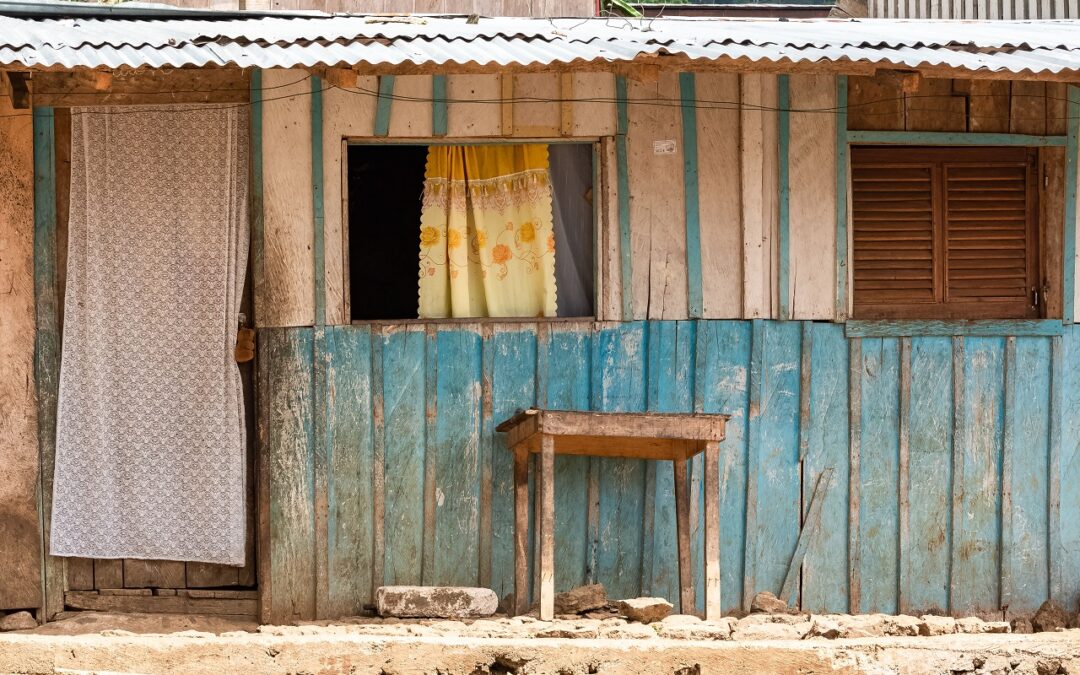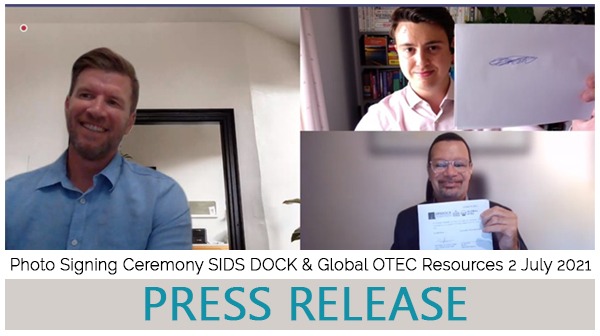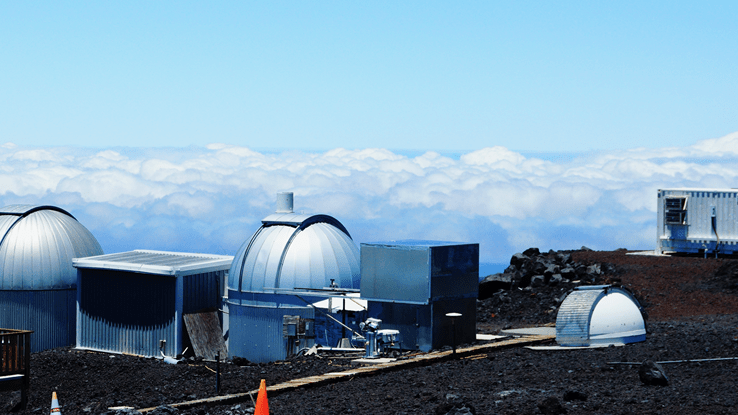
UNIDO Tender for Consultancy Services
1. Low-Carbon Transport Development of a standard and compliance framework for low-emission transport and an electric mobility roadmap for São Tomé and Príncipe, Deadline for applications: 15 June 2023 TERMS OF REFERENCE (TOR) Development of a standard and compliance...
SIDS DOCK and Global OTEC Resources announce partnership to develop and deploy Floating Ocean Thermal Energy Conversion (OTEC) Technology Concept in small islands
07 July 2021, United Nations Headquarters, New York, U.S.A.: SIDS DOCK, the Small Island Developing States (SIDS) Sustainable Energy and Climate Resilience Organization, has signed an agreement with the United Kingdom (UK)-based Global OTEC Resources Limited, to collaborate on developing and deploying Floating Ocean Thermal Energy Conversion (OTEC) Technology Concept in SIDS. The signing ceremony took place on Friday, 2 July 2021, by means of a virtual conference between representatives in Seychelles, Jamaica, Portugal and the United Kingdom.

Carbon Dioxide, Which Drives Climate Change, Reaches Highest Level In 4 Million Years
This 2019 photo provided by NOAA shows the Mauna Loa Atmospheric Baseline Observatory in Hawaii. Measurements taken at the station in May 2021 revealed the highest monthly average of atmospheric carbon dioxide in human history.
Susan Cobb/NOAA Global Monitoring Laboratory
The amount of carbon dioxide in Earth’s atmosphere reached 419 parts per million in May, its highest level in more than four million years, the National Oceanic and Atmospheric Administration announced on Monday.
SIDS DOCK and GRID-Arendal announce strategic partnership for sustainable use and management of marine resources in small islands and low-lying developing countries
SIDS DOCK and GRID-Arendal announce strategic partnership for sustainable use and management of marine resources in small islands and low-lying developing countries Projects will support the economic and livelihoods systems of the populations and promote...COVID-19, Blue Economy, and the Climate Change Agenda: The case of Seychelles
The human toll of the COVID-19 pandemic has been devastating. At the same time, measures to tackle the crisis have affected national economies and grounded global trade to a halt. Small Island Developing States (SIDS) such as the Seychelles are amongst the countries that have suffered some of the worst economic impacts of the outbreak. The current situation illustrates the global state of unpreparedness for a pandemic and points to similar inadequacies vis-à-vis climate change. Already reeling from the adverse consequences of climate change, the Seychelles’ emerging Blue Economy
